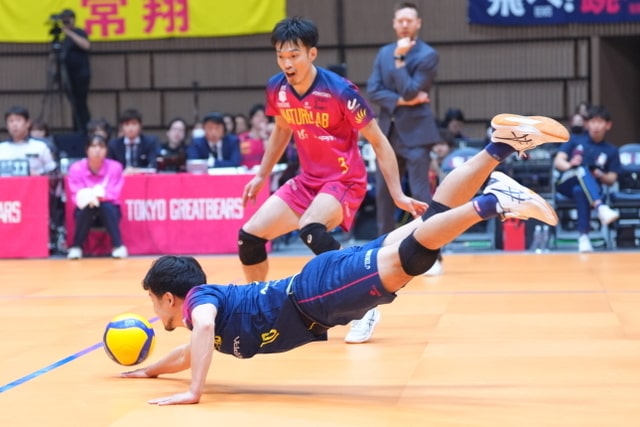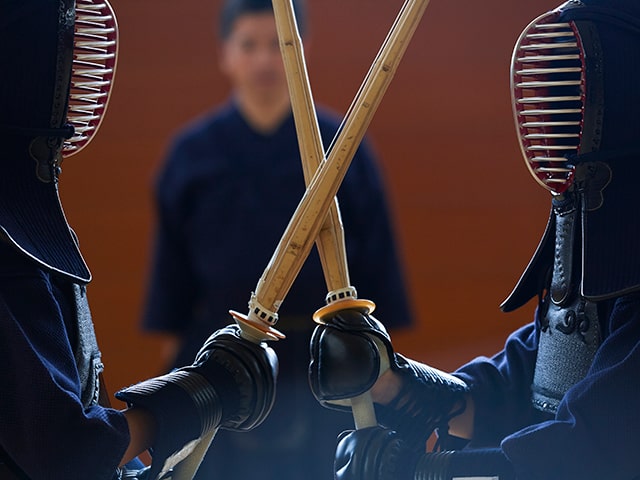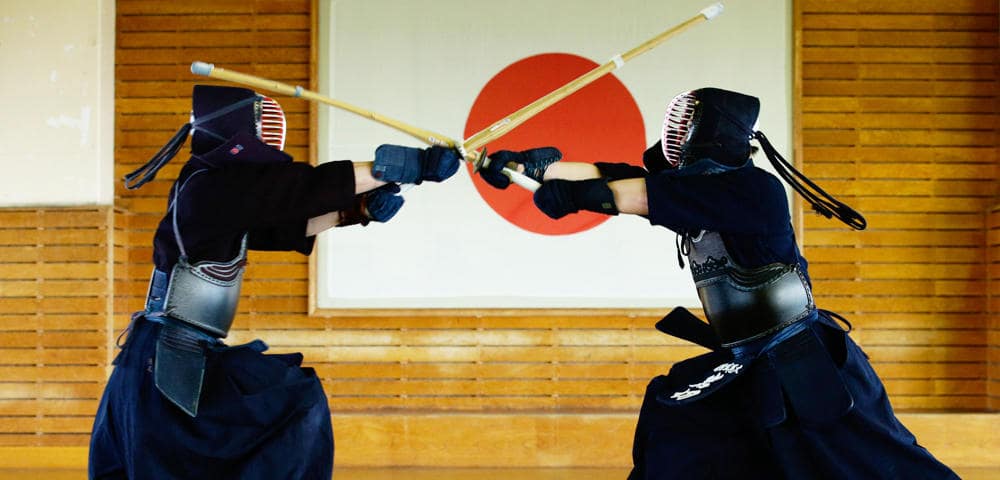
Kendo is not just a martial art that trains the body, but has a culture that values spirituality, which comprehensively improves the mind, technique, and body.
Idioms play a huge role in shaping this deep spiritual world.
The idioms used in Kendo have meanings that are more than just words; they can move the hearts of practitioners and serve as lights that illuminate their path as martial artists.
Here we introduce some cool and popular idioms that touch and move the heart that Kendo enthusiasts should know.
Let’s explore the depth of Kendo and how it is useful in our daily life through these idioms.
目次
- 1 Kendo and Idioms: The power of words to train the mind
- 2 Selected cool kendo phrases to hone your mind, technique, and body
- 3 Popular kendo idioms and the stories behind them
- 4 Cool phrases that can be used in practice to move your heart
- 5 How to incorporate idioms into your life through Kendo
- 6 Learn the deep spirituality of Kendo from idioms
- 7 summary
Kendo and Idioms: The power of words to train the mind
Kendo may look like a competition using bamboo swords, but at its core it is about spiritual growth and self-development.
For those who follow this path, idioms become more than just words, they become important tools for training, improving spirituality, and deepening the philosophy of life.
Idioms in Kendo are a powerful means of conveying the spirit of Bushido and training the mind.
The connection between Bushido and idioms
The spirit of Bushido includes values such as courage, honesty, and honor, which are expressed through numerous idioms.
These idioms serve as guidelines for those learning kendo to reflect on their own actions and encourage mental growth.
Harmony of mind, technique and body
Kendo places great importance on the harmony of mind, technique, and body. By balancing your mind (spirit), technique (technique), and body (body), you can bring out your best performance.
The idiom for “mind, technique, and body” can help you internalize the importance of this balance.
Self-reflection through idioms
Kendo practice and competitions are not only an external challenge, but also a dialogue with oneself.
Idioms enrich this process of self-dialogue and provide an opportunity to reconsider the purpose and motivation of daily training.
In particular, the idioms that are reflected during Kendo training provide an opportunity to deeply reflect on one’s own actions and thoughts.
Training the mind through the power of words
Learning idioms related to Kendo is more than just memorizing words.
They can serve as a compass to train your mind and guide you on the right path in your daily life.
By understanding the meaning behind idioms and incorporating them into your life, you will be able to grow not only in Kendo but in life in general.
The deep relationship between kendo and idioms leads us to a rich spiritual world that goes beyond just honing our skills.
Let’s aim to grow as a Kendo practitioner and as a person through the power of words that train the mind.

Selected cool kendo phrases to hone your mind, technique, and body
Kendo training is more than just physical training.
The aim is to complete the trinity of mind, technique, and body, and in the process many idioms serve as guidelines.
Here, we will introduce some cool idioms that you can use to hone your mind, technique, and body in Kendo.
Idiom that symbolizes Bushido spirit
- Fudoshin : The ability to remain unwavering no matter the situation. In Kendo, it refers to the state of mind in which you do not lose your cool during a match and always make decisions and act calmly.
- Ichigo Ichie (Ichigo Ichie) : This means a once-in-a-lifetime encounter, and when it comes to Kendo matches and training, we cherish each moment and show an attitude of giving our all.
- Shojin : To constantly improve oneself. It represents the attitude of a Kendo practitioner who strives not only for technique but also for spiritual growth.
Words to deepen Kendo as a competition
- Shobuyomi : The ability to read the opponent’s intentions and movements and predict their next move. This technique is essential for success in the game.
- Spirit : Having a strong will and fighting spirit within. In a Kendo match, it is not just technique that determines the outcome, but also the spirit that determines the outcome.
- Kenki : The power that is invisible to the eye but can be felt by the wielder of the sword. It refers to an overwhelming presence and a sense of intimidation towards the opponent, and is a quality required of a high-level kendo practitioner.
These idioms serve as spiritual guides to deepen your understanding of Kendo and hone your mind, technique, and body.
The path to maturity as a kendoist is to experience the meanings of these idioms through kendo training and use them for personal growth.
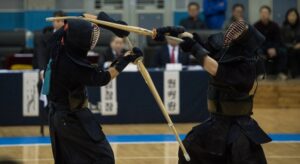
Popular kendo idioms and the stories behind them
Idioms in Kendo have a profound background and meaning that are more than just combinations of words, and convey many stories and philosophies.
Here, we will explore popular idioms in Kendo, their origins and meanings, and how and when to use them in Kendo.
Fudoshin
Origin and meaning
Fudoshin means a state of mind that is unwavering and unwavering no matter the situation.
This idiom is a concept that has been valued in Shugendo and Zen Buddhism, and is also considered one of the most important spiritual foundations in Kendo.
Usage and situations in Kendo
When an unexpected situation arises during a match or practice, remaining steadfast allows you to respond calmly and make appropriate decisions and actions.
This is especially important when responding to an opponent’s attack without faltering.
Once-in-a-lifetime chance (Ichigo Ichie)
Origin and meaning
This idiom comes from the tea ceremony and expresses the spirit of valuing important encounters that only occur once in a lifetime.
Kendo teaches that you should cherish each moment and do your best.
Usage and situations in Kendo
Games and practices are once-in-a-lifetime encounters that will never be repeated under the same conditions.
By approaching with this mindset, you will be able to practice Kendo by always doing your best and not wasting any moments.
Shojin
Origin and meaning
Originally a Buddhist term, it means to be diligent in one’s own training.
In Kendo, we strive to not only improve our technique, but also to grow spiritually every day.
Usage and situations in Kendo
In daily practice, you can walk the path to becoming a true kendo expert by paying attention not only to your technique but also to your mental growth and devoting yourself to each movement.
These idioms symbolize the spiritual teachings to be learned through Kendo, and provide guidelines for Kendo practitioners to keep in mind in their daily lives and training.
By understanding the stories and philosophies contained in these words and applying them to your own kendo, you will be able to not only improve your technique, but also grow as a person.
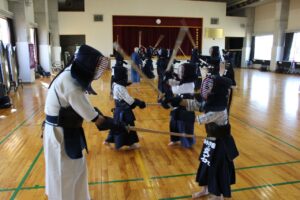
Cool phrases that can be used in practice to move your heart
In Kendo, the power of idioms goes beyond the mere meaning of words, and serves as a source that moves the hearts of practitioners and guides their actions.
Here, we will introduce some cool and moving idioms that can be used in practice, and explore how each idiom affects Kendo practitioners.
mind’s eye
meaning
Literally translated, it means “eyes of the mind,” meaning the ability to sense things that cannot be seen with the mind.
In Kendo, it refers to the ability to predict an opponent’s next move and read the invisible flow of “Ki.”
How to use it in practice
In matches and practice, you can not only follow your opponent’s movements with your eyes, but by developing your mind’s eye, you will be able to sense the opponent’s intentions and signs and take the initiative.
This ability is cultivated through diligent daily practice and deep observation of the other person.
Seichūdō
meaning
It expresses a state of being quiet on the outside, but moving on the inside.
In Kendo, it refers to a state of mind that is always in motion, even if one appears calm on the surface, secretly thinking of the next move.
How to use it in practice
During a match, you don’t show it on your face or attitude, but plan your next move inwardly and create strategies to confuse your opponent.
This idiom teaches us the importance of a Kendo practitioner maintaining a balance between outer calmness and inner activity.
Yuuou Maishin
meaning
It is an idiom that means to keep moving forward with courage even in the face of difficulties.
Demonstrate the courage to face the trials and challenges that are inevitable on the path of Kendo.
How to use it in practice
In Kendo practice and competitions, you must have the attitude of learning from failures and setbacks and using them as fuel to further grow.
By having the spirit of courage and progress, you will be able to overcome any difficulties and keep moving towards your goals.
These idioms have a great influence not only on the practice of Kendo, but also on our actions and feelings in daily life.
Make these cool idioms that move your heart your own and demonstrate their power in Kendo and in various situations in life.
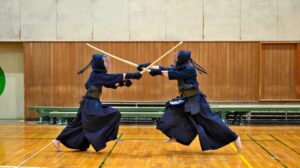
How to incorporate idioms into your life through Kendo
Kendo is a martial art that not only trains the body, but also nurtures the spirit. The idioms learned in Kendo contain lessons that go beyond training and apply to life in general.
Here, we will introduce how to incorporate and put into practice the idioms you learned through Kendo into your daily life.
reflect in daily behavior
- Idioms such as fudoshin and ichigo ichie can also be applied in daily life. For example, incorporating fudo into your life can help you stay calm during emergencies and high-stress situations. Also, by interacting with people with a once-in-a-lifetime spirit, you can enrich your relationships with others.
Use for goal setting
- We apply the spirit of courage and dedication to setting personal goals and taking on challenges. Remember these idioms and use them as the driving force to overcome the difficulties and setbacks that stand in your way as you move toward your goals.
incorporate into conscious language
- By consciously using the idioms you learned in Kendo in your daily conversations and communication, your awareness of your own thoughts and words and actions will change. For example, sharing concepts such as mind’s eye and tranquility during team projects or conversations with friends can foster deeper understanding and cooperation.
Incorporate into education and guidance
- As a teacher, instructor, or leader, incorporating Kendo idioms as part of your education can have a profound impact on your audience. Through these idioms, values such as courage, perseverance, and respect can be conveyed, especially to the younger generation.
Incorporating the idioms learned in Kendo into your daily life is more than simply memorizing the words.
By putting the spirit contained in these idioms into practice in your daily life, you will be able to encourage your own spiritual growth and enrich your relationships with those around you.
Use the lessons learned from your Kendo training to live a more fulfilling life.
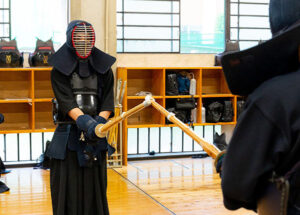
Learn the deep spirituality of Kendo from idioms
Kendo places great importance on mental growth as well as physical training.
To encourage this spiritual growth, many idioms are used in Kendo, each symbolizing the deep spirituality of Kendo.
Through idioms, you can learn about Kendo’s spiritual pursuits and life philosophy, and move on to the path of self-growth.
Practicing Fudoshin
Fudoshin means that the mind remains unwavering under any circumstances.
In Kendo, what we can learn from this idiom is the ability to remain calm and make calm decisions even when faced with severe trials or unexpected situations.
This leads to the development of a universal mental strength that can be applied not only to Kendo matches, but also to the various challenges faced in everyday life.
The spirit of once-in-a-lifetime (Ichigo Ichie)
Ichigo-ichie means a once-in-a-lifetime encounter, but in Kendo, it also applies to the teaching that you should cherish each moment and do your best.
This idiom teaches us the importance of doing our best in this moment in order to live life to the fullest.
By having a once-in-a-lifetime mindset when meeting people, practicing daily, and talking with yourself, you can reduce wasted time and increase the amount of time you spend in your life.
Self-improvement through dedication
Shojin means an attitude of continuing to improve oneself. What we can learn from this idiom through kendo is the importance of constant effort, not only for technical improvement, but also for spiritual growth and improvement of humanity.
Devotion in daily practice not only improves your Kendo skills, but also leads to deep maturity as a person, which leads to growth in all aspects of life.
These idioms in Kendo go beyond mere technical improvement and offer deep insight into a way of life itself.
More than just honing your Kendo techniques, learning idioms will help you dig deeper into your inner self and serve as a guide on your journey toward true self-growth.
By deeply understanding the spirituality of Kendo and incorporating it into your life, you will be able to live a more fulfilling life.
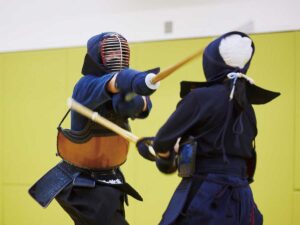
summary
Kendo is not simply a sport that competes in technique and physical strength, but is a martial art that places great value on the harmony of mind, technique, and body, and on enhancing spirituality.
The idioms learned through this path serve as an entrance to the deep spiritual world of Kendo. Idioms such as fudoshin, ichigo ichie, and shojin can serve as important guidelines not only for kendo training but also for daily life.
These words teach us the importance of staying calm in any situation, valuing each moment, and self-improvement.
By incorporating the idioms learned through Kendo into our daily lives, we can not only hone our skills, but also grow our minds and enrich our lives.
Kendo idioms have universal value that helps you grow as a person and improve your spirituality, and they bring deep meaning to your daily life.
By understanding the meaning behind these words and putting them into practice, we will be able to embody the spirit of Kendo and lead a more fulfilling life.
Kendo is a martial art with deep spirituality that goes beyond technique and teaches us how to live.

